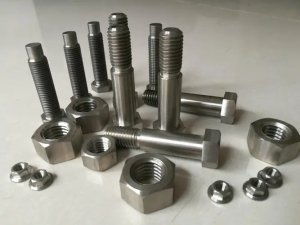Why are there hardness requirements for titanium screws?
The density of titanium alloys is generally around 4.51g/cubic centimeter, which is only 60% of steel. Some high-strength titanium alloys exceed the strength of many alloy structural steels. Therefore, the specific strength (strength/density) of titanium alloys is much greater than that of other metal structural materials. It can produce parts with high unit strength, good rigidity, and lightweight. Titanium alloys are used in aircraft engine components, frames, skins, fasteners, and landing gear. So when we customize titanium screws, how should we choose the material of the screws? Titanium alloys are produced to meet the different needs of industry.

Since all screws in the world are used in different environments and are used in different positions on machine components, the hardness, flexibility, thermal conductivity, and wear resistance of the titanium screws required by the machine are also different. Therefore, when customizing screw fasteners for customers, they will always ask the user where the screws are used and what kind of performance they need to have?
If hardness is required, it is recommended to use titanium-cobalt alloy. Titanium-cobalt alloy is generally used to make cutting tools. When selecting materials for titanium screw processing, you must understand that when the hardness of the screw is very high, the titanium screw will easily break.


